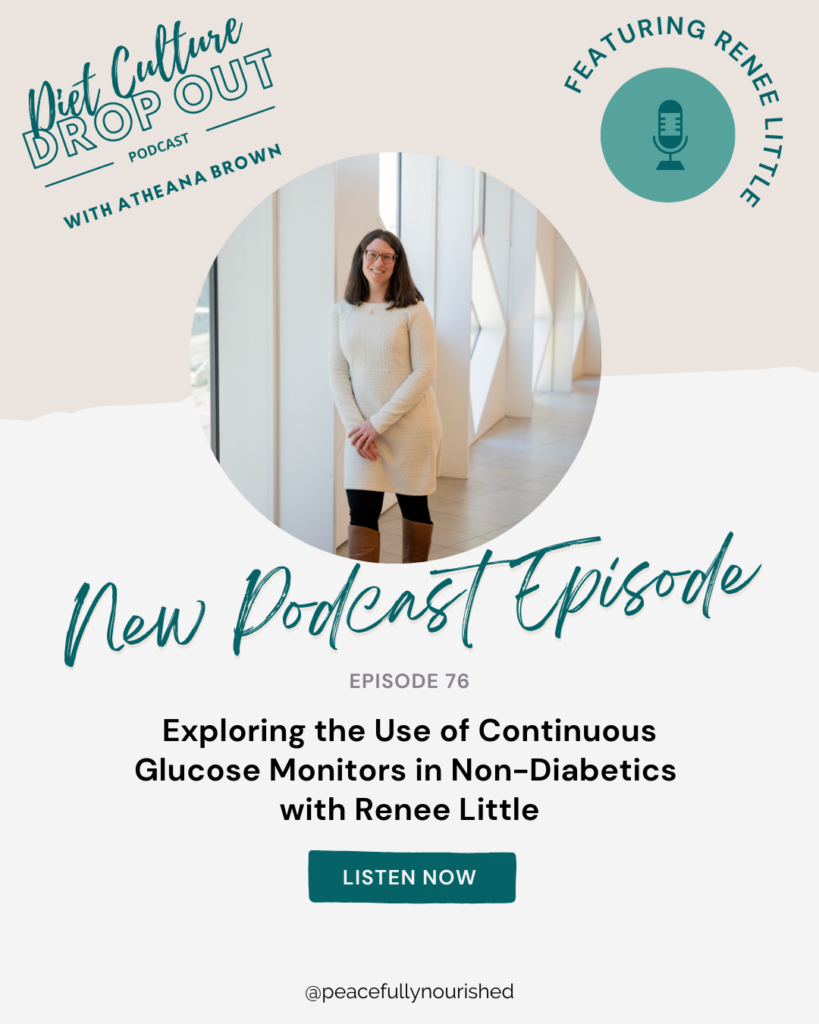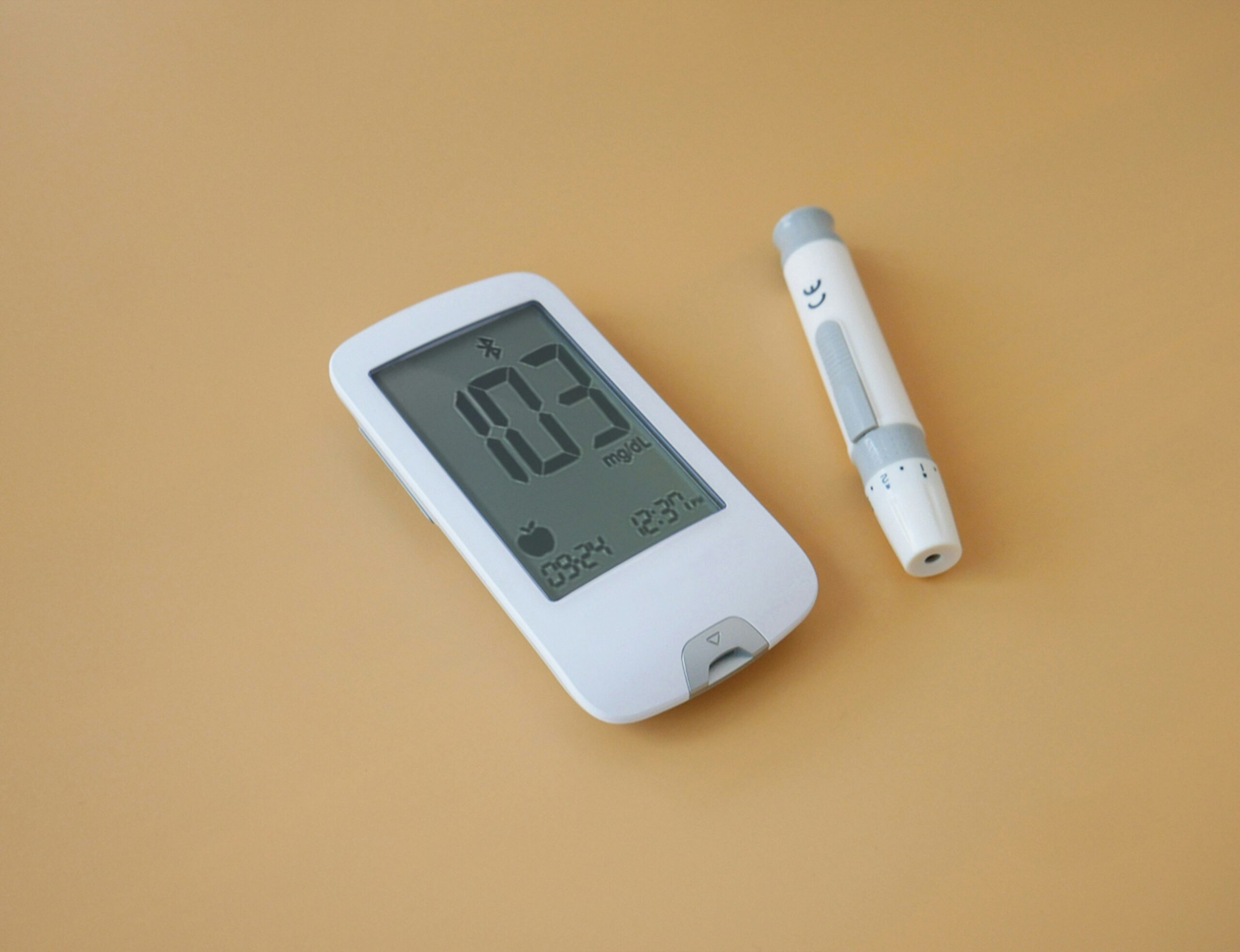Welcome back to Diet Culture Dropout! I have been on a little bit of a break from podcasting as we opened up our physical location for Peacefully Nourished and a yoga studio (Fieldside Yoga + Retreats).
In this week’s episode, I was thrilled to bring back Renée Little, a dedicated dietitian who specializes in eating disorders and helping individuals reclaim their relationship with food. We delved into a topic that’s been making waves recently: Continuous Glucose Monitors (CGMs). Are they beneficial for everyone, or are they a tool best reserved for those with diabetes? Here’s a closer look at our enlightening conversation.
Listen to the full podcast episode here

CGMs are fascinating devices designed to measure glucose levels in interstitial fluid rather than blood. Originally intended for individuals with diabetes, these monitors provide real-time readings every five minutes. This, in turn, can help those with diabetes better manage their insulin levels and overall health. However, as Renée and I explored, the use of Continuous Glucose Monitors is now being marketed to the general population, raising important questions about their efficacy and potential harm.
The Surge in CGM Popularity
The increased availability and insurance coverage for CGMs have allowed more individuals access to this technology. Naturally, this caught the eye of wellness influencers who suggest CGMs could be a tool for general health optimization, a concept often referred to as “hacking health.” Despite this interest, our discussion highlighted the significant lack of research supporting such use. There’s no current data that shows Continuous Glucose Monitors are beneficial for non-diabetics, leading to potential misunderstanding of glucose level data and unnecessary anxiety.
Potential Harms Beyond the Data
Beyond the scientific uncertainty, there’s a risk of misinterpreting glucose data and its implications. For those without diabetes, there are no established norms for what Continuous Glucose Monitor readings should be at various times, making it easy to misinterpret normal fluctuations as a problem. Renée shared concerns about the anxiety and dietary manipulation that could arise from misunderstanding this information. Additionally, physical limitations, such as discomfort from the adhesive or impaired sleep, are practical issues that may further deter their use.
Renée’s Personal Experiment with a CGM
Putting theory into practice, Renée wore a CGM herself for 10 days to witness firsthand the impact it had on her lifestyle and perceptions. Despite her professional background, she encountered initial confusion and stress over interpreting the data. Constant phone connectivity was required to track her levels accurately, which proved to be somewhat cumbersome. The adhesive’s strength also created discomfort when removing the sensor. While the experience provided insights into how different foods affect glucose levels, Renée remained critical, emphasizing that the broader applicability is limited.
Should CGMs Be Used by Non-Diabetics?
In our discussion, it became clear that for average individuals without diabetes or specific athletic requirements, Continuous Glucose Monitors may offer little more than unnecessary stress. The benefits for the general public remain unproven, and without medical necessity, the financial costs and risks of increased health anxiety may outweigh the novelty of the data provided.
In the End..
To conclude, our chat with Renée Little provided a fascinating exploration into the emerging use of CGMs beyond their intended demographic. Her firsthand experience and professional insights caution against their application for non-diabetics, suggesting a need for skepticism and sensitivity in navigating health trends.
To learn more about Renée’s work and continue exploring topics surrounding diet culture and health, visit her website and check out her blog post she did on CGM’s.
**End Note:** As always, if you’re considering any new health device or therapy, it’s essential to consult with a healthcare professional to determine what’s right for you.

leave a comment
share
share
share
share
share